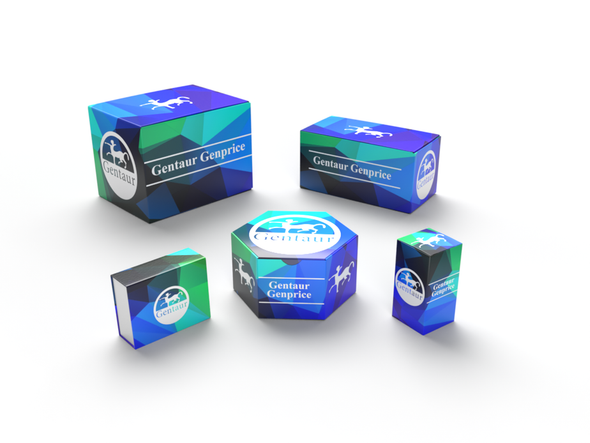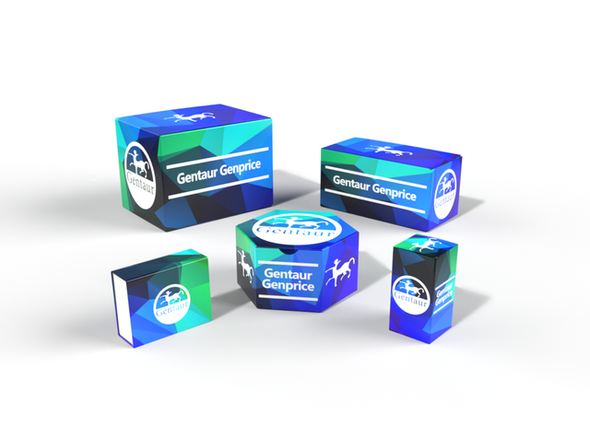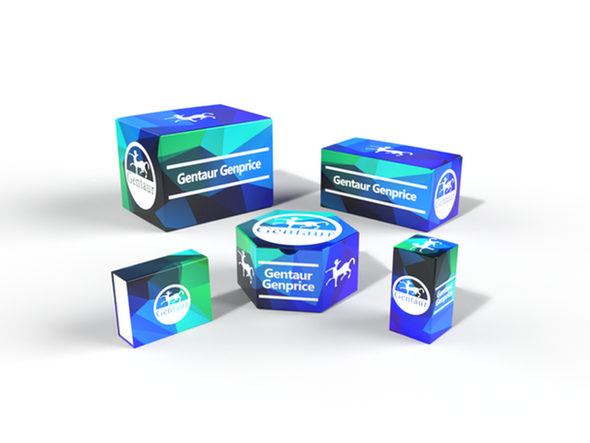Description
SIGLEC15 Antibody | 6765 | Gentaur UK, US & Europe Distribution
Host: Rabbit
Reactivity: Human, Mouse, Rat
Homology: N/A
Immunogen: SIGLEC15 antibody was raised against a 15 amino acid synthetic peptide near the amino terminus of human SIGLEC15.
The immunogen is located within amino acids 50 - 100 of SIGLEC15.
Research Area: Immunology
Tested Application: E, WB, IHC-P
Application: SIGLEC15 antibody can be used for detection of SIGLEC15 by Western blot at 1 - 2 μg/mL. Antibody can also be used for immunohistochemistry starting at 2.5 μg/mL.
Antibody validated: Western Blot in human samples and Immunohistochemistry in human samples. All other applications and species not yet tested.
Specificiy: SIGLEC15 antibody is predicted to not cross-react with other SIGLEC family members.
Positive Control 1: Cat. No. 1305 - Human Kidney Tissue Lysate
Positive Control 2: Cat. No. 10-401 - Human Kidney Tissue Slide
Positive Control 3: N/A
Positive Control 4: N/A
Positive Control 5: N/A
Positive Control 6: N/A
Molecular Weight: Predicted: 36 kDa
Observed: 42 kDa
Validation: N/A
Isoform: N/A
Purification: SIGLEC15 Antibody is affinity chromatography purified via peptide column.
Clonality: Polyclonal
Clone: N/A
Isotype: IgG
Conjugate: Unconjugated
Physical State: Liquid
Buffer: SIGLEC15 Antibody is supplied in PBS containing 0.02% sodium azide.
Concentration: 1 mg/mL
Storage Condition: SIGLEC15 antibody can be stored at 4˚C for three months and -20˚C, stable for up to one year. As with all antibodies care should be taken to avoid repeated freeze thaw cycles. Antibodies should not be exposed to prolonged high temperatures.
Alternate Name: SIGLEC15 Antibody: CD33L3, HsT1361, SIGLEC-15, CD33L3, Sialic acid-binding Ig-like lectin 15, CD33 antigen-like 3, Siglec-15
User Note: Optimal dilutions for each application to be determined by the researcher.
BACKGROUND: SIGLEC15 Antibody: Siglecs are vertebrate cell-surface lectins that recognize sialylated glycans and are involved in many physiological processes, such as glycoprotein turnover, cellular trafficking, and pathogen recognition. Most Siglecs are expressed on cells of the immune system. SIGLEC15 is a type-I transmembrane protein consisting of two immunoglobulin (Ig) -like domains, a transmembrane domain containing a lysine residue, and a short cytoplasmic tail. SIGLEC15 can interact with the activating adaptor molecules DAP12/10. Its activating signaling potential and unique preference for glycan recognition implies that SIGLEC15 may be involved in the immune surveillance of tumors and probably plays a conserved, regulatory role in the immune system of vertebrates.










